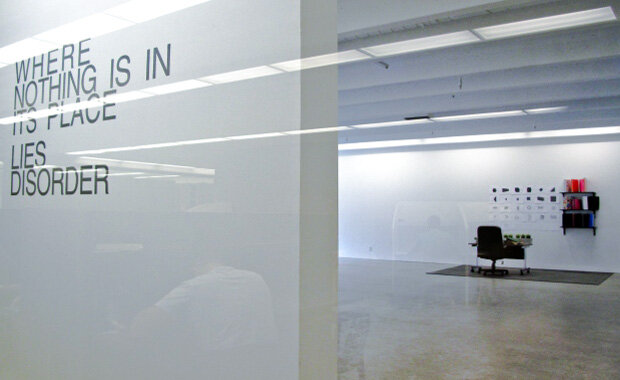An ideological question about the fifth type of Subject that is now induced by a machinic encounter.
Installation View at the Access Gallery






Mixed Media
TV Monitor, Black IKEA Wooden Bookshelf, Book, Silver Mirror, Black Paint, Digital Image.
210cm x 137cm x 40cm
Description
"Ali Ahadi's Sculptural installation consists of a bookshelf on top of which sits a flat screen monitor. However, unlike those found in typical living rooms, Ahadi's media console is turned around to face the wall, hiding the books' spines and instead exposing the back of the screen. In the small gap between the wall and the monitor, a mirror reflects the screen's bright red surface which reads: "Can maggots possibly pardon Assad?"
Overturning a typical houshold media console in this installation transports the viewers behind the scene, exposing them to the hidden parts of media apparatus. This shift raises questions about the vital role of interfaces in converting raw data into information. The work highlights the inherent dialectics between access and prohibition, and the circular processes of mediating and reflecting. It also speaks about the impossiblity of the concept of data-democracy and universal access; only those capable of mobilizing large amounts of data and affording sophisticated algorithms can potentially have a meaningful relationship with vast amounts of information. In addition, the work identifies the ramifications of the dominant political economy of data through which cultural products of different qualities are flattened into the same ontological status and forced to abandon their specific spatiotemporal autonomy in favor of a ubiquitous terrain accessible only to experts. Ahadi's work cannot help but to function as a timely reference to the recent NSA spying revelations and their geopolitical consequences,"
*By Mohammad Salemy; originally written for the exhibition catalogue of the Encyclonospace Iranica Exhibition held at the Vancouver's Access Gallery.
Installation View at the Koerner Gallery







